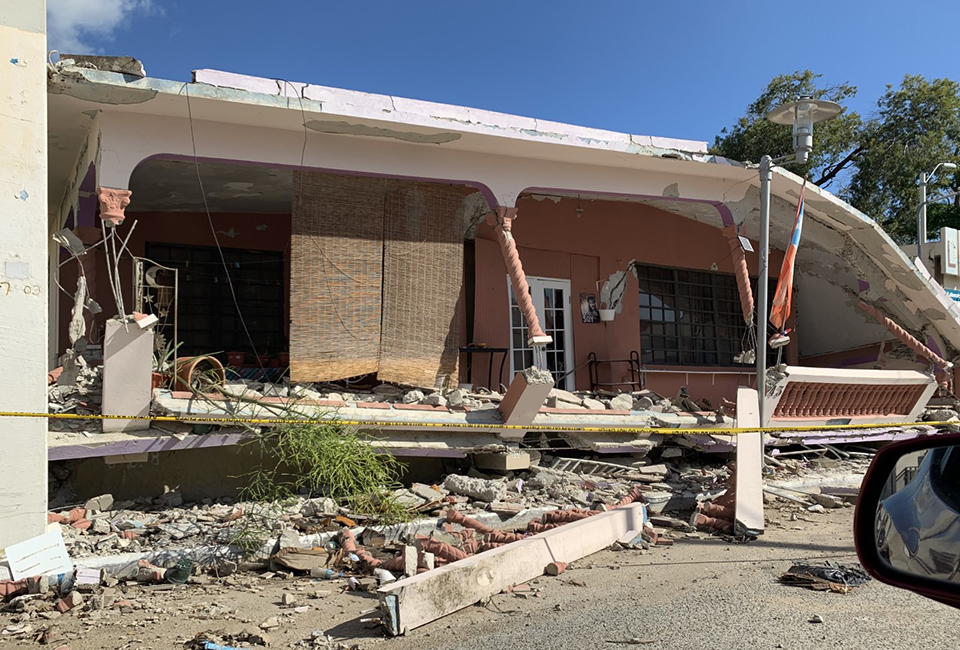by Megan Brown, Student Reporter

Natural disasters do not discriminate, and those who live on the island of Puerto Rico have faced a long string of them.
Recent earthquakes have left residents without homes, water and power for many days.
Puerto Rico was hit with hundreds of smaller earthquakes throughout the end of 2019 and the beginning of 2020 until a powerful 6.4-magnitude earthquake hit on the morning of Jan. 7.
This affected the majority of the south side of the island and resulted in tsunami warnings and aftershock damages.
Angel Perez, a junior member of the baseball team at Northwestern, is from Puerto Rico. His family, friends and girlfriend still reside there.
Perez said his family members were some of the luckier ones, as they did not lose their homes. But family friends have lost their homes and belongings.
“We had three days without power on the whole island of Puerto Rico,” he said. “Right now, the south is like, 50/50 on power, and they don’t have water.”
Perez’s girlfriend, Oasis Rodriguez Reynoso, was on the island during the earthquakes. She spent the days after the disaster providing aid to those affected.
Reynoso said she spent time delivering supplies to villages that needed them.
“The delivery of supplies was a total success,” Reynoso said. “I prepared some bags containing water, toothbrushes and pastes, snacks, meals, wipes, coffee, bath soap, socks … and we also took dog food. I had my house full of many things: sheets, clothes, towels, baby stuff and food, and children’s and adult’s Pampers.”
Reynoso said the assistance she has seen for those in need has come from Puerto Ricans themselves who are looking to help their neighbors.
She said she did not see as much help from the government as she had hoped to.
For Reynoso, Perez and the residents of Puerto Rico, this is not the first natural disaster that has left their country damaged. In 2014, the entire country was affected by a Category 4 hurricane.
According to many news sources, unused resources sent to aide those in need after Hurricane Maria were found unused and hidden. This has created distrust within the residences.
Reynoso said she believes the government is portraying the situation as “handled” when people are, in fact, living in the streets and struggling with daily needs. She said many of those in the streets are elderly, ill and alone.
She said she struggled with overwhelming emotions while distributing her care packages.
“It was very difficult to watch it on the news and also be there,” Reynoso said.
While Puerto Rico has been left wounded, Reynoso and Perez are given hope for reform from their fellow Puerto Ricans, who are giving their time and resources to help each other.
“Thank God neither my relatives nor friends were affected by these earthquakes,” Reynoso said. “But I can tell you that we live in anxiety since the earthquakes are atmospheric phenomena of which we do not know how much their magnitude will be or at what time it will be.”
